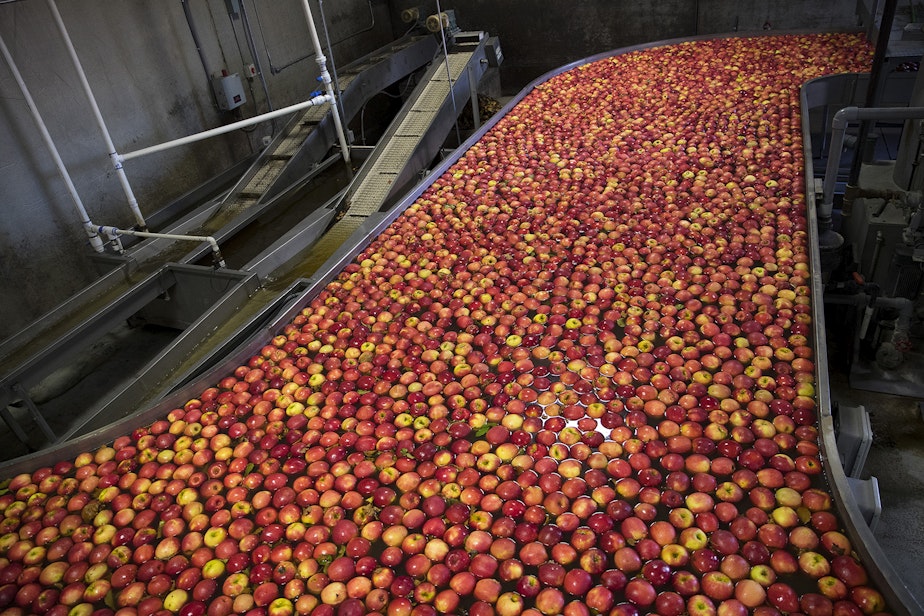Tariffs stopped many Washington apples from reaching India. Lawmakers want to fix that

The Northwest ships many of its apple harvest to India, including boat loads of red delicious apples.
But retaliatory tariffs put in place in 2019 are taking a bite out of the valuable market. Now, Washington's full congressional delegation is asking the federal government for help.
This week, the entire Washington Congressional delegation — about a dozen politicians spanning Democrat Senator Maria Cantwell to Republican Rep. Dan Newhouse — requested help from the U.S. Trade Representative and the Secretary of Commerce to help remove Indian tariffs on U.S. apples.
India has been one of the largest export markets for Northwest growers for decades. In 2017, Washington apple exports hit a high of $120 million. But a steel and aluminum tariff, slapped on India by the Trump Administration in 2018, caused the Indian government to put an additional 20% tax on U.S. apple imports. That sliced the Northwest apple exports to India down to just $3 million.
According to the letter sent by Washington lawmakers:
Sponsored
"Dear Ambassador Tai and Secretary Raimondo:
We request your assistance to remedy burdensome tariffs imposed by the Government of India on U.S. tree fruit industry at the upcoming Trade Policy Forum (TPF.) The TPF provides a unique opportunity for the U.S. Trade Representative and the Government of India to discuss retaliatory tariffs that are hurting tree fruit growers in Washington state and nationally. It is important to use this forum to work towards a solution that will allow the tree fruit industry to remain viable and continue to produce tree fruit domestically.
The tree fruit industry has suffered significant losses due to India’s retaliation for U.S. Section 232 tariffs. On average, 30 percent of the apples, cherries, and pears produced in the Pacific Northwest are exported and India was once a strong market. With retaliatory tariffs in place, Washington state apples growers have continuously lost market share in India. Prior to the implementation of these tariffs, India was our number two export market, valued at $120 million annually. Last season, growers exported barely $3 million. As growers have watched hard-earned market share and sales evaporate, their competitors in other countries have gained more of the market share.
Continued export losses coincide with ongoing cost-of-production increases that are forcing multigenerational family farms out of business. The Red Delicious variety accounts for nearly all the exports to India. Families operating legacy Red Delicious orchards, many of whom may not have the financial capacity to modernize their orchards, are disproportionately affected by the tariffs. This year the Red Delicious crop is the lowest since 1968. Corporate, out-of-state, entities are acquiring and consolidating larger operations, while smaller farms simply go out of business.
The damage inflicted by the retaliatory tariffs on tree fruit growers, their employees, and communities is clear and a solution is long overdue. On behalf of the many stakeholders throughout our region, we appreciate your attention to this matter. Following the TPF, we request that you meet with members of the Pacific Northwest tree fruit industry to discuss the next steps to remove the retaliatory tariffs."




